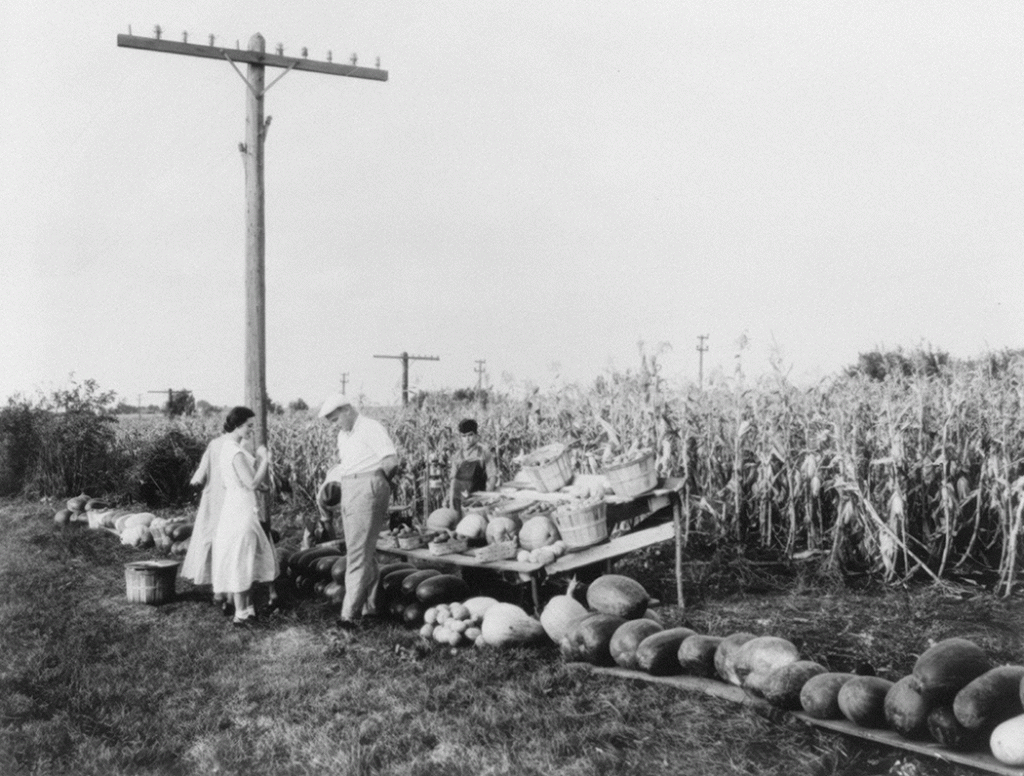
You know what the difference between heaven and hell is? In heaven, the British are the police, the Germans are the mechanics, the French are the cooks, the Italians are the lovers, and the Swiss are the administrators.
In hell, the British are the cooks, the French are the mechanics, the Germans are the police, the Swiss are the lovers, and the Italians are the administrators.
We’ve enjoyed this joke for decades in our family, and it’s a perfect illustration of the advance of civilization. Primitive humans didn’t differentiate much. Each family had to be self-sufficient. They had to do everything for themselves.
Many things helped civilization develop, but none may be more important than differentiation. The blacksmith wasn’t very good at keeping books, so he hired a bookkeeper. The bookkeeper had a brown thumb, so he bought produce from the farmer. The farmer wasn’t very good at making tools, so he bought them from the blacksmith.
This is called trade. Differentiation is why we trade.
As civilization advanced, differentiation became more pronounced. People can get wealthy if they are extremely good at something valuable that no one else can do.
Some countries are, for a wide variety of reasons, better at some things than others. Colombia produces great coffee. Argentina produces great beef. So Colombians sell coffee to Argentina and Argentines sell beef to Colombians.
In the 1990s we entered into a free trade agreement with our biggest trading partners, Mexico and Canada. Ross Perot, the one-time independent presidential candidate, correctly predicted that NAFTA would result in a great loss of American jobs. But a funny thing happened. We lost some lower-paying factory jobs and became a much wealthier country, and we gained higher-paying tech jobs. In the process, while jettisoning lower-paying manual work, we also moved to effectively full employment.
Americans lost millions of manufacturing jobs, especially to Mexico and later to China. Now, instead of buying American-made washing machines, computers, televisions, and other long-lasting, big-ticket items known as durable goods, we buy durable goods made mostly in Mexico and China. How is that fair?
Here’s how. We lost an estimated three million manufacturing jobs to Mexico and China, and in exchange we got to buy those durable goods at lower prices than if we’d made them ourselves. So 335 million Americans ended up with a better standard of living.
That’s how America got wealthier than either Canada or Mexico as a result of NAFTA. We increased the size of our economy by a factor of at least two while we increased our population by roughly 40 percent. We got wealthier.
To be sure, so did Mexico, Canada, and China. One of the things those countries did with their new wealth is buy products from America and become tourists in America, spending their money here.
Today, we are running at full employment and have been for the last five years. Even if we wanted to make all the things we used to, we couldn’t. We don’t have enough workers to staff the factories.
As the wealthiest nation in the history of the world, we are in a position to buy more from every other nation in the world than they can possibly afford to buy from us. And there are very few scenarios under which we would run trade surpluses.
So there you have it. We aren’t going to grow enough coffee, oranges, and avocados for ourselves. Our lives will not be improved by manufacturing more floor mops and buckets. How do I know that?
In 1900, the United States was an agricultural nation. One in ten Americans worked on farms for low wages. Today, less than one in 10,000 Americans works on a farm. All of us have much higher standards of living than we had in 1900. We moved up the value-added ladder.
Some might say the most successful American company right now is Nvidia. Nvidia’s profit margins are 75 percent. They make something every other country wants and no one else can make.
Would you trade Nvidia for Toyota? I hope not. Don’t get me wrong. I love my Toyotas. They’re great cars. Toyota’s profit margin is 17 percent. Please let the Japanese continue to make great cars for comparatively little profit while we clean up selling tech to the world at far larger profits.
Our lives will continue to be better than most of the rest of the world. We will continue to get wealthier at a faster pace than most of the rest of the world. Or we can try to make our own underwear, grow our own coffee, and produce our own sneakers. In short, we can be like the blacksmith who attempts to be self-sufficient in areas where he’s not very competent.
*With apologies to Maria Grever, author of What a Difference a Day Makes.
Hal Masover is a Chartered Retirement Planning Counselor and a registered representative. His firm, Investment Insights, is at 508 N 2nd Street, Suite 203, Fairfield, IA 52556. Securities offered through, Cambridge Investment Research, Inc, a Broker/Dealer, Member FINRA/SIPC. Investment Advisor Representative, Cambridge Investment Research Advisors, Inc., a Registered Investment Advisor. Investment Insights, Inc & Cambridge are not affiliated. Comments and questions can be sent to hal@getyourinsight.com These are the opinions of Hal Masover and not necessarily those of Cambridge, are for informational purposes only, and should not be construed or acted upon as individualized investment advice. Investing involves risk. Depending on the types of investments, there may be varying degrees of risk. Investors should be prepared to bear loss, including total loss of principal. Past performance is no guarantee of future results.
